Charles Pakana (Victorian Aboriginal News)
Joining me today on the program is Kerry Arabena, a descendant of the Meriam people from the Torres Strait. She’s the MD of Arabena Consulting and the lead researcher and MD of the First 1000 Days Australia. Prior to that, she was the founding CEO of the highly acclaimed Lowitja Institute and has extensive background in public health, community development and research. Kerry, welcome to the program. Thanks for joining us.
Kerry Arabena
Thank you so much for having me this morning.
Charles
Kerry. I really have been wanting to catch up with you for quite a while to talk about this First 1000 Days Australia program. I’m aware that it’s really aimed at those first three, those formative years of childhood, and this is an Aboriginal owned, it’s an Aboriginal initiative or Aboriginal women’s initiative. Provide us a broad brushstrokes but succinct description of what the program is and how it came about.
Kerry
That’s such a powerful question internationally. The First 1000 Days is an international nutrition program, and it was established to connect mothers with good nutrition during pregnancy to stop the rate of stunted growth in children around the world, particularly those in countries where food security was a real issue.
I had known about it for some time, but a pediatric gastroenterologist came back to see me when I was working in the University of Melbourne to say that she had attended this incredible conference.
Charles
When was this?
Kerry
This is kind of between 2013, 2014.
Charles
So relatively recent.
Kerry
Relatively recent. Hillary Clinton was one of the champions of the international movement. And whilst I didn’t get the chance to meet her, what we were able to do was really think about then, well, we’re not just dying from nutrition alone in our communities. We’ve also got issues around developmental vulnerabilities. We’ve got issues around access to food security. But child protection issues and others were such a big part of this early years framework that we were all trying to work in at that time.
Charles
Now we’ll come back to that in a second. So just clarify one thing for me, vulnerabilities. Just explain that for the audience and for me too.
Kerry
No, that’s okay. So during pregnancies and in those early years, what we try to do is make sure that children’s hearing is attended to because if children have hearing issues, it can affect them across their entire lives.
Charles
Of course.
Kerry
In fact, one of the major reasons why young children end up in juvenile detention, the common denominator is hearing issues that didn’t allow them to participate in school.
Well, all the way through. But when do we actually pick up those hearing issues? So really working through evidence on that.
Charles
…because I know this is an evidence based model.
Kerry
Yes.
Charles
So what sort of evidence is this based on?
Kerry
This has come out of the royal commission, particularly into Don dale, up in the Northern Territory. And one of our Victorian based disability champions, Jodie Barney, has done a lot of work with them in that region and found that up to 90% of those children who were incarcerated or had experienced incarceration, the majority of them, the common denominator, was hearing health.
It wasn’t there. There’s also a wider range of children in our communities who are being born with developmental vulnerabilities and we classify them within a FASD kind of arrangement. So fetal alcohol syndrome disorder, where mums may not have known that they were pregnant and had consumed alcohol to harmful levels, and that then has a impact on the growing bubba when they’re in utero.
Charles
Right.
Kerry
And so those kinds of things were really prevalent and a lot of work has gone on around Australia to really focus in on those deficits and to try to fix them. What we wanted to do was then just pause, get rid of all the deficits and think about our strengths.
It was a time when we were really starting to get into intergenerational trauma and understanding what that was. But what we wanted to do was try to unpack what could be done to really build up children’s identity, cultural strengths, and give parents that opportunity to learn about and use cultural parenting techniques in their own families.
Because whilst our current medical systems, you go in and you get our babies weighed, you have a conversation with child and maternal health nurses, those kinds of things. There’s a really clear need to include both men and women in the growing up of our children. It’s really, really vital. So when we first started talking about First 1000 Days Australia and what it could mean for our communities, what we ended up doing was over the course of a year, we worked with researchers, community leaders, we ended up working with policy and program designers and parents.
And we came up then with a model where instead of clinical reasons for attending, we worked on the ceremonial reasons why people would attend to their own communities, to present themselves as newly arrived parents. And we wanted to build some hopes and aspirations in for families, because oftentimes what we work with is our deficits.
When we can’t afford to do something or when we’re not strong or we’re born small, what we don’t do is say you’ve got a beautiful baby. The first time that your baby experiences Cultural Safety is in utero, like when you’re carrying your baby, that’s the safest and cultural thing. And we don’t talk about actually giving birth to babies. What we talk about is the sacred responsibility of carrying our future Elders.
Charles
And we will come back to that and we will focus on that. I just want to take you back a little bit. You said that when we saw this model, when we started to explore this model. So who was we at this stage?
Kerry
So I was working with the University of Melbourne and there were a number of colleagues who were very, very interested in the opportunity to reframe what those early years was all about. And we ended up working with a group of Elders and wisdom holders and leaders in this space.
And we ended up working with the likes of Andrew Jackamos, who was the first Aboriginal commissioner in Australia, which focused in on the needs of children. Well, he was doing the Task Force 1000 during that time and found that a number of children were transitioning into out of home care arrangements because of the misuse of alcohol and illicit drugs, as well as family violence.
We also had Aunty Diane Kerr, who absolutely in this space was able to lend her understanding of what it meant for young women to go through ceremony to recognise that they are entering womanhood. And at that time she had rediscovered William Barak’s birthing tree and were taking people for ceremonies at those places. So understood that sacred connection between what it’s like to enter into your adulthood and reconnect with Country in a profound way.
Charles
So what does the program actually now deliver?
Kerry
When we were implementing the work, we implemented strategies in Townsville, Moreton Bay, in Dandenong region, down at Mornington Peninsula and out to the Gippsland region.
Charles
I’ve noticed some case studies on the website on that.
Kerry
Yes. So we did implementation and what we were doing was running the evaluations and the research projects alongside the interventions. And it just sounds crazy, but what we did was clear out all of the deficit language and instead of using case management strategies with social workers, we did coaching. So working with coaching. So rather than having someone say, you’re not a good parent unless you do ABC, what we did was work with families and talk about reactivating their cultural roles and responsibilities to the children who will be born into their families.
Charles
Was it always the intention to make it for First Nations people specifically?
Kerry
It was always going to be conceived in that way, like we were the first ones that really broadened out a nutrition program into something that could also explore ceremony, cultural re-engagement, business development and those kinds of things. But what we were doing was responding to things that were happening in our community.
And so, for example, with the business development, the reason we went down that route was because there were too many of our young, beautiful men ending up incarcerated. And sadly, the fastest growing prison population in Australia at the moment is young Aboriginal women here in Victoria. And so we have this unusual arrangement where, for whatever reason, we have completely normalised that Aboriginal men are the most incarcerated people on the planet. We can say that without any understanding.
But the reality also is that the young women are going in, which meant that both parents were being incarcerated. And you just have these usual kind of family formations where you might have grandparents who are looking after a great number of grandchildren full time while their parents are institutionalised.
Charles
So this First 1000 Days program goes phenomenally beyond what you would expect with the maternal and early child health programs that a local council or a community health service would be providing. What’s the scope, the real scope of this? Because every time you’re talking, you’re bringing in another demographic or another area of people in need.
Kerry
It’s one of the first programs that have been developed up for and by Aboriginal and Torres Strait Islander people that’s been internationally transported. So we’ve actually implemented the First 1000 Days Australia model into the Sami community in the Arctic Circle. So we actually did a lot of work with the University and a lot of the Sami people, particularly social workers, we went to visit them at the International Social Workers Conference and went with them to visit different communities and childcare centres and experiences.
And it was such a good way to understand how Scandinavian countries can privilege the role of both fathering and mothering in the care of children because their men were able to have three months off maternity leave. So mum’s got three months off, dad’s got three months off, and then six, like, ended up being like, six months together. And it was a really beautiful way to help men bond with their babies.
And so when we came back over here, we took some of those ideas to implement here and they took our model and implemented it there. It’s also gone into Indonesian markets as well. So we had, when we were in Queensland and doing the work there, we had a big summit and the Indonesian community came down who were implementing the First 1000 days Australia there.
And again, because of the focus on nutrition internationally, it’s got a great big impact on chronic diseases like diabetes and the like later on in life. But what we were able to do was also introduce family planning ideas into the model in Indonesia. And so it became a more full and well rounded holistic intervention, which really reflected what First Nations people’s models were doing.
Charles
So paint me a picture of what it would be for a family to come in and be involved in this program. What’s their first exposure to this, and what can they expect over that next three year period?
Kerry
So we’ve decided to work from preconception to a child’s second birthday. Preconception is a very important time where people can understand what roles and responsibilities they have got before they are on the journey toward parenthood.
Charles
This is the choice to be a parent at the time that best suits them.
Kerry
Absolutely right. Because there are a number of people who may not have that kind of choice.
Charles
Yeah.
Kerry
If they are experiencing vulnerability, the first thing that you want to do is if you haven’t been loved all the way through your life, is to want desperately to be loved. Well, a child is someone to love. Those kinds of motivations are very.
They’re very front of mind. I’ve got over 20 years worth of experience in working in sexual and reproductive health. And so I’ve heard a lot of times when people were out of control in their sexual or reproductive health options, they didn’t feel like they had a voice.
There wasn’t really consent. There was much more or coercion happening in some of those experiences where people became parents, but they weren’t ready to. And one of the beautiful gifts that our elders gave us was this charter for the rights of children yet to be conceived. And they really spoke about it from a child’s point of view before they were even conceived.
Charles
Now, is this something that we can put as a PDF on our website to accompany this particular interview?
Kerry
Absolutely. And free of charge off our website. There’s a number of different resources and things like that.
Charles
So we will point to that on the website. So let’s head back so that the couple who are looking to this is the ideal situation. A couple is looking to start a family. They will participate in the program.
Kerry
Yes.
Charles
What’s the first exposure? What can I expect?
Kerry
Okay, so the ways that we have implemented this before is to start with culture. We always start with culture as the protective factor for our families. So we have a look at things like what’s people’s ability to connect to their Country look like? What does their language group look like? What were some of the birthing ceremonies that happened? How were elders involved? What were the roles of Uncles and Aunties in the life of this children? So it was a really strong cultural exploration.
Charles
Extended family in a way.
Kerry
Absolutely, sure. So we’d bring all of those people together and then we spent four weeks building them into a smaller community, a smaller learning community. And the way that we did that was to provide them training to become peer researchers and we ended up designing with them an aspirations household survey.
So we would ask parents about what their aspirations were and what ones they had for their families. Once we had gone through supporting them to do that, there’d be a six week period of time where people would go out and use their Facebook networks, use public housing lists, use other kinds of things to get out there and go and be researchers and find out what it was that people wanted to have happen for them.
Charles
So you’re putting a bit of onus back on them. They want to do some of the hard work or a lot of the hard work.
Kerry
Absolutely. But I tell you what, what it did was also change their identity from being a single mother or I’m too depressed to get out of home or I’m a single dad through to. I’m a peer researcher that’s got connections through to the University of Melbourne and we’re out there and we’re now providing this information back to policymakers, programmers and designers of interventions. Our information that we’ve collected.
Charles
But to people who are getting involved in the program now, do they all have to do that? Because obviously that’s going to be beyond the comfort level of some people.
Kerry
Absolutely not. So when they come in, that’s what we end up doing though is working with an understanding about what the aspirations that the community has. Those people who participate can get hooked up with life coaches and mentors to achieve those goals if they want.
And then we start the work. And the work normally happens with parenting groups, with childcare centres and into those sorts of places. But then we used to run an eight week long cultural parenting program which would then lead into the Welcome Baby to Country ceremony and then afterwards that’s when the peer researchers would be engaged.
So in the first instance what we were doing was just working with Elders and families to really make sure that the welcome baby to country ceremonies happened strongly. And then after that we could continue the kind of engagement.
Charles
So what about the health issues determining those developmental issues that we spoke about at the beginning of the interview. Where did those things come into the program?
Kerry
It’s going to be very powerful. What we’ve worked out is when we’ve got mums and bubs programs, when we’ve got family violence prevention programs for dads to attend, there’s actually. We’ve made men invisible in the roles and responsibilities that they have, both culturally and physically and spiritually and in many other ways to their families.
Charles
What do you mean you’ve made them invisible?
Kerry
Well, when you talk about mums and bubs programs, you’ve got a highly feminised workforce.
Charles
Right, okay.
Kerry
Yeah. It’s actually very, very difficult for men to feel engaged.
Charles
So this is traditionally what has happened.
Kerry
That’s right. So now we’re doing training with workers for father inclusive practice, for dads to have recognition and pride in what it is that they offer, that they have got cultural roles and responsibilities and that’s what we really activate. The thing is that we can only work with people who believe what we believe. You can’t work with anyone else.
You can’t change those cranky non-Indigenous child and maternal health nurses that just want to weigh your bubby and say, see you later. That’s it. Now you’re on your way. But really, the point and purpose and the power of First 1000 Days Australia is connection and creating for people a sense of belonging and providing opportunities for people to feel really confident in what it is that they’re offering their children.
We also have got some small resources that we’ve been able to develop and for use in playgroups. We are revitalising languages through some of the other business programs because we believe in that. And we’re really, really excited now about the opportunity to recognise children in Victoria who were born in 2018.
And after that period of time as the treaty generation, for us, it’s a really lovely replacement of the stolen generation, which makes us feel really sad. And there is an incredible amount of intergenerational pain within families around that experience. So with this Treaty program that’s now occurring in Victoria, to think about how we can help children reach the full potential and the promise that treaty has for them and to really bring that children’s voice into this experience as well has been really profound.
Charles
So the children who first come into this Treaty generation in 2018 are now going to be about five or six years old. What are your hopes for them for the future?
Kerry
That they have the opportunity to express their full potential and that they are cared for and loved in very powerful and tender ways.
Charles
So this is really also bringing about the realisation of equity before equality. Obviously we all want an equal society, but without the appropriate levels of equity, we can’t achieve that.
Kerry
That’s right. And we heard that very clearly at the early childhood summit which happened last week in Victoria where there was a very, very strong cooperation between state government and the closing the gap framework and the Treaty partners.
Everyone all came together and we’ve had this big conversation now about what it’s going to look like to activate the Treaty generation. So whilst it may not be focusing in on First 1000 Days Australia as a model, what it’s doing is working with that empowerment, with that self determination, with helping people shift their gaze on our men from being really harsh and almost dismissive to really integrated and have involvement in our families. They’re the things that are very important for us.
Charles
How can people, parents, wannabe parents and even early childhood health practitioners find out more about what this program is all about?
Kerry
So you can go to our website, First 1000 days Australia. We do online and face to face training to help people get their heads around some of the big concepts and also some of the core opportunities to change our practice.
Because Treaty is coming and I’m very, very excited about helping people work toward achieving equity than equality. And that’s part of my life’s journey. And I hope all of you are out there and experiencing wonderful, safe parenting and experiences and that you grow our future Elders.
Charles
Well Kerry Arabena, thanks so much indeed.
Kerry
Thank you so much.


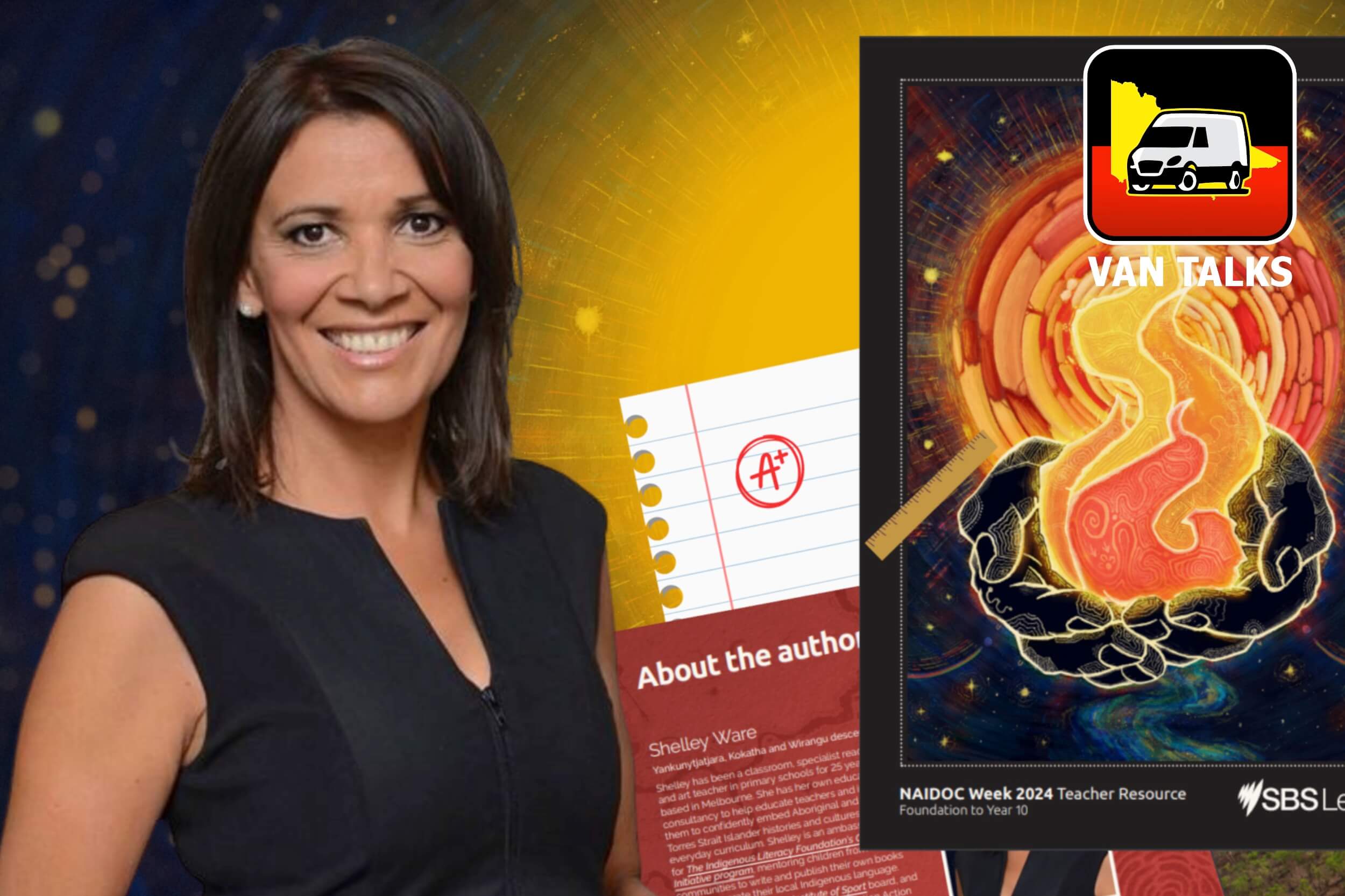
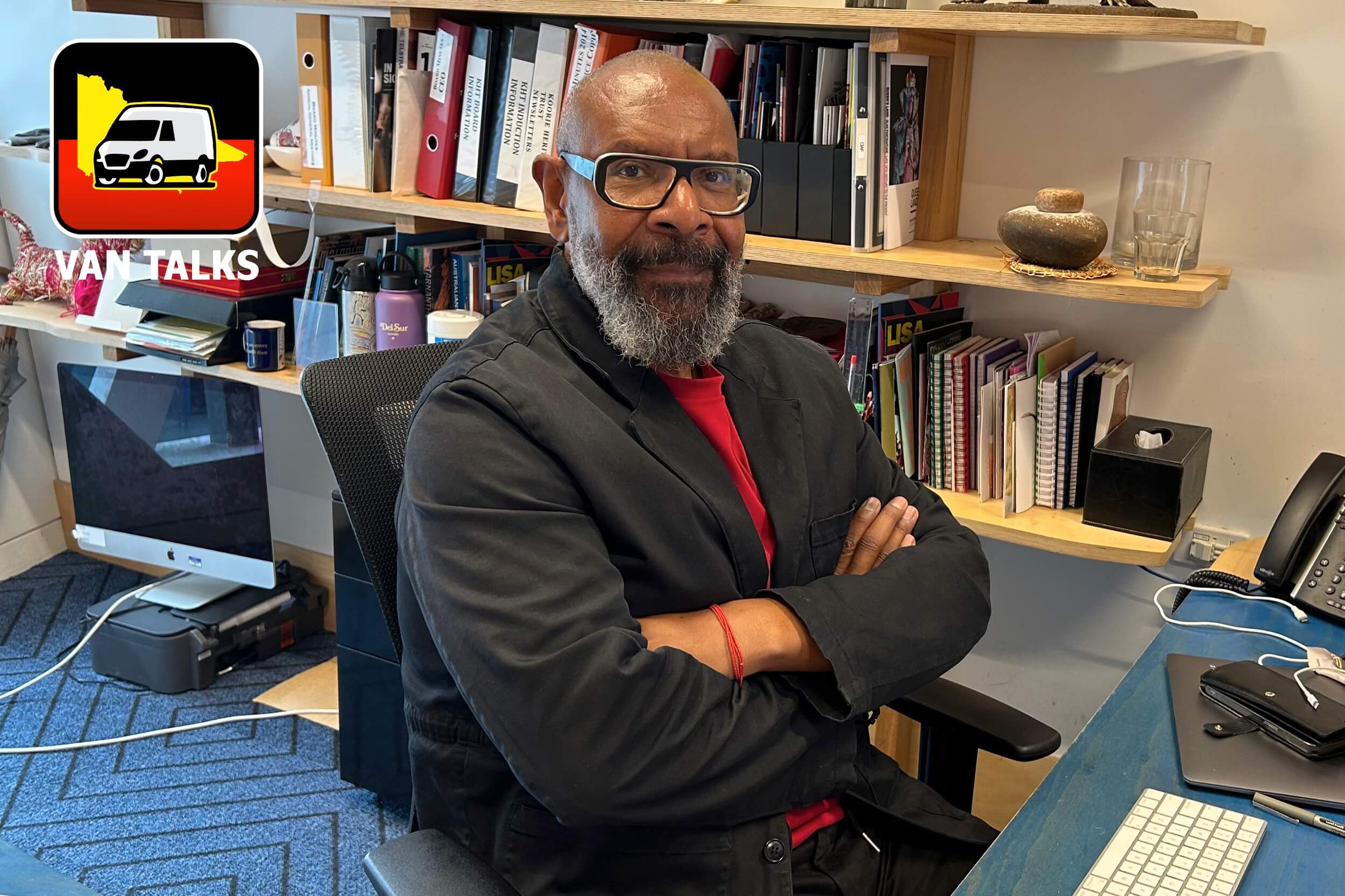
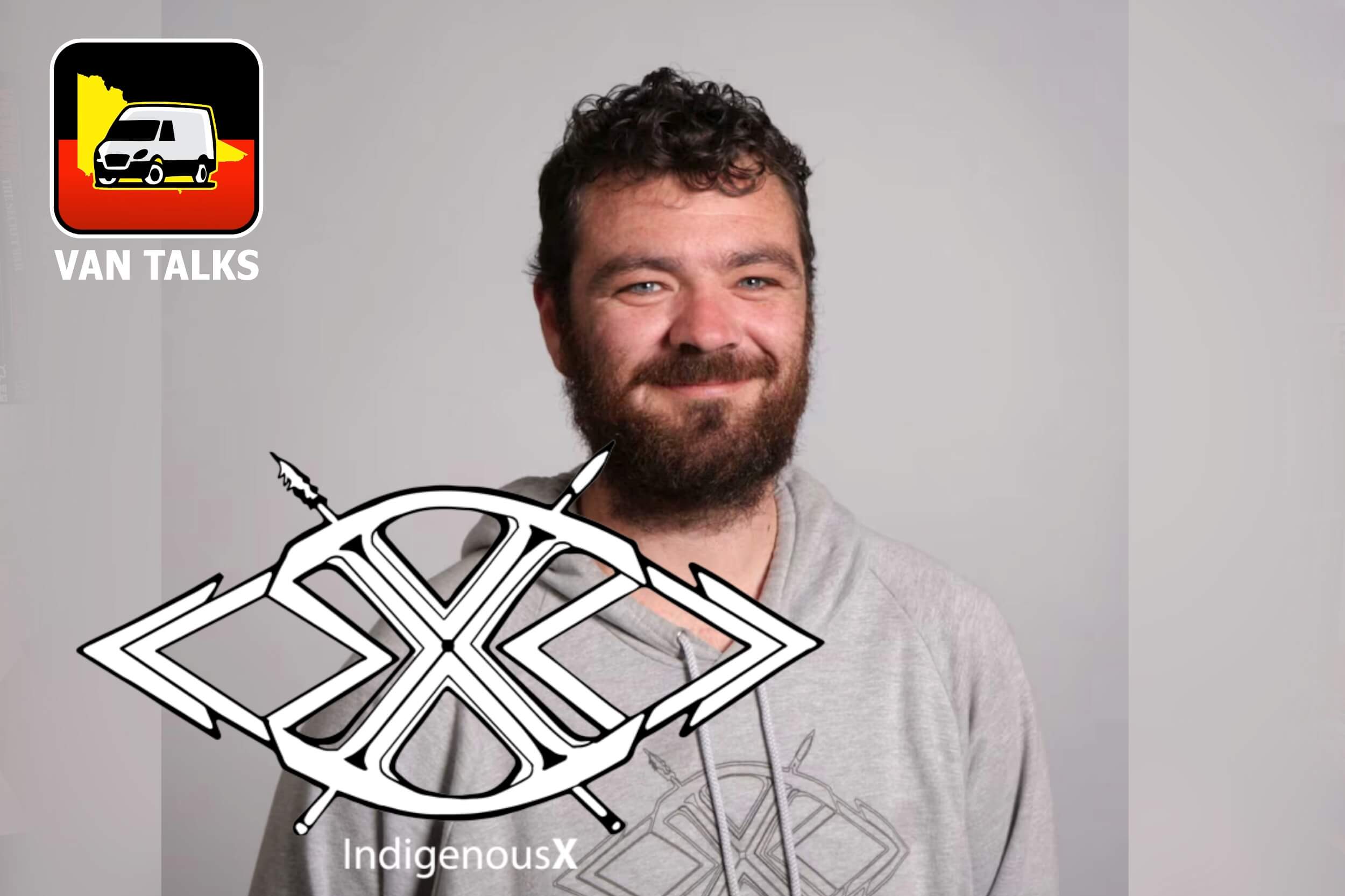
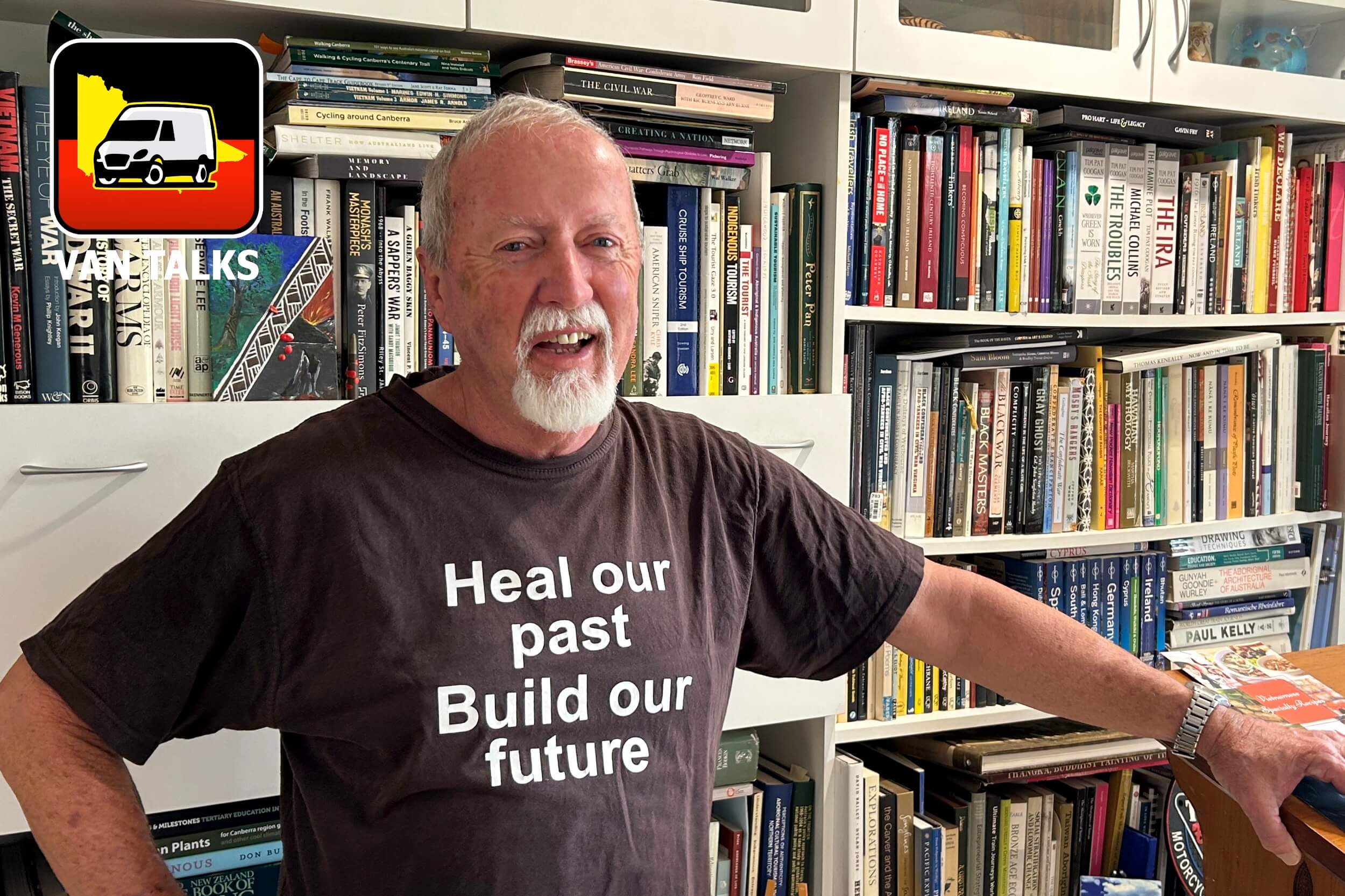
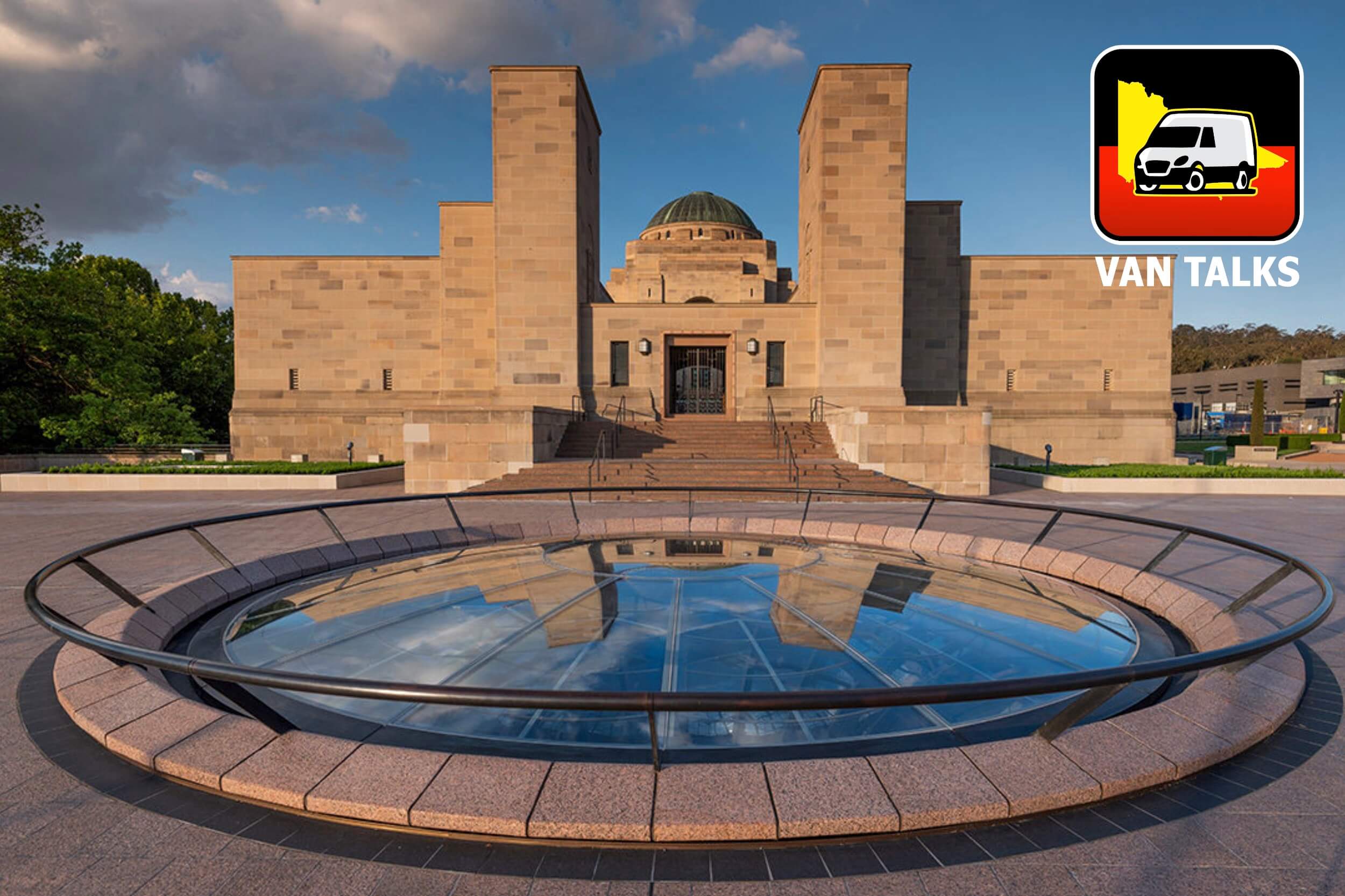

0 Comments